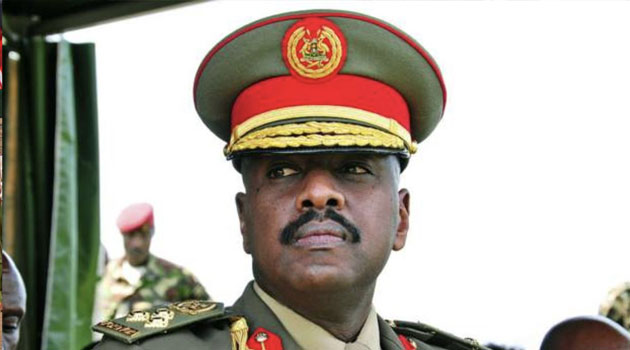
Uganda signals readiness to take in Palestinian refugees under Israel-supported scheme » Capital News
NAIROBI, Kenya, Aug 15 — Uganda’s Chief of Defence Forces, General Muhoozi Kainerugaba, has said the country is open to hosting some Palestinian refugees from the war-torn Gaza Strip, provided the resettlement is supported by the Government of Israel.
Muhoozi — who is also President Yoweri Museveni’s son — said in a statement on Friday that any decision on the matter would ultimately rest with Museveni and Israeli Prime Minister Benjamin Netanyahu.
“Mzee [Museveni] and Prime Minister Benjamin Netanyahu will take the final decision. But as a principle, we have no problem with some Palestinian refugees settling in Uganda, as long as the Government of Israel supports their resettlement,” Muhoozi said.
Describing Israelis as “relatives” and “brothers,” Muhoozi invoked religious ties.
“The first Muchwezi, Jesus Christ, came from Israel (sic). We have to support them as much as possible.”
However, he stressed that Uganda would “not tolerate even for a second any idea of Hamas or extremism in any way.”
He revealed that he initially opposed the idea but changed his stance after “Christ reminded me that He is the God of all mankind. Even the Palestinians are His children.”
Muhoozi’s remarks come amid growing controversy over reports that Israel is seeking to relocate Palestinians from the Gaza Strip to other countries as part of a plan it calls “voluntary migration.”
Forced displacement
Rights groups and much of the international community have condemned such proposals, warning they could amount to forced displacement and violate international law.
On Wednesday, neighbouring South Sudan dismissed similar reports, with its Ministry of Foreign Affairs and International Cooperation calling claims of ongoing discussions with Israel “baseless” and inconsistent with Juba’s policy.
“The Ministry of Foreign Affairs and International Cooperation of the Republic of South Sudan firmly refutes recent media reports claiming that the Government of the Republic of South Sudan is engaged in discussions with the State of Israel regarding the resettlement of Palestinian nationals from Gaza in South Sudan,” the ministry said.
The government stressed that it has no plans to take in Palestinian refugees, noting that the country is itself emerging from years of civil war and grappling with significant humanitarian challenges. Juba also urged media outlets to “exercise due diligence and verify information through official channels before publication.”
The clarification follows an Associated Press report on Tuesday alleging that Prime Minister Netanyahu’s government was in talks with South Sudan as part of a wider effort to facilitate mass emigration from Gaza, which has been devastated by nearly two years of conflict.
‘Voluntary migration’
Six sources familiar with the matter reportedly confirmed the discussions, though the extent of progress remains unclear.
According to AP, Netanyahu has been pursuing what he calls “voluntary migration” for much of Gaza’s population, framing it as a way to separate civilians from Hamas fighters.
He has previously floated similar resettlement proposals to other African nations, citing the vision of US President Donald Trump.
Rights groups and much of the international community have condemned such plans, warning they could amount to forced displacement — a violation of international law.
Palestinians have also rejected the proposals, insisting on their right to remain in their homeland.
The South Sudanese denial comes as several countries — including the UK, Canada, France, and Australia — have announced plans to support recognition of a Palestinian state at the United Nations General Assembly in September.
Israel, which faces mounting pressure to end its Gaza offensive, argues that recognising a Palestinian state “rewards terrorism,” a position echoed by Washington.
The Gaza Strip has been under Israeli bombardment and blockade since October 2023, when war erupted following a deadly Hamas attack that killed about 1,200 people and saw 251 others taken hostage.
Israel’s 22-month military campaign has killed tens of thousands, displaced the majority of the enclave’s 2.3 million residents, and left much of Gaza in ruins, with severe shortages of food, water, and medical supplies.
The United Nations has repeatedly warned that parts of Gaza are on the brink of famine.